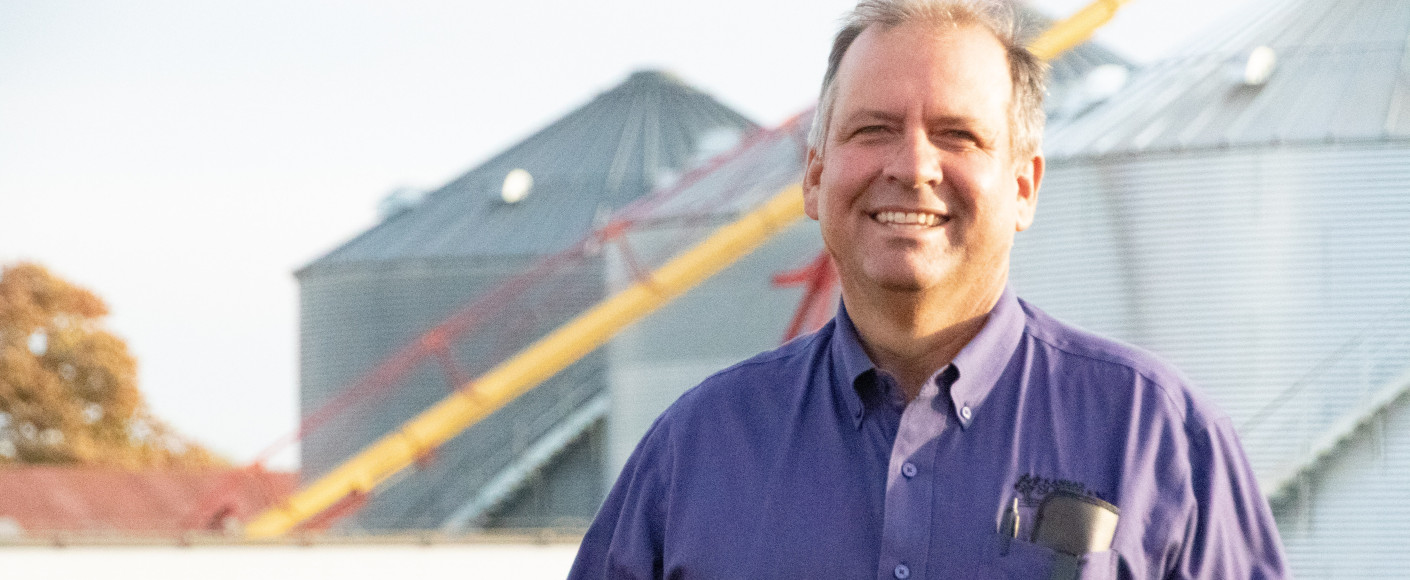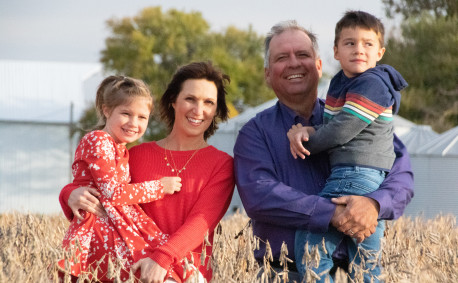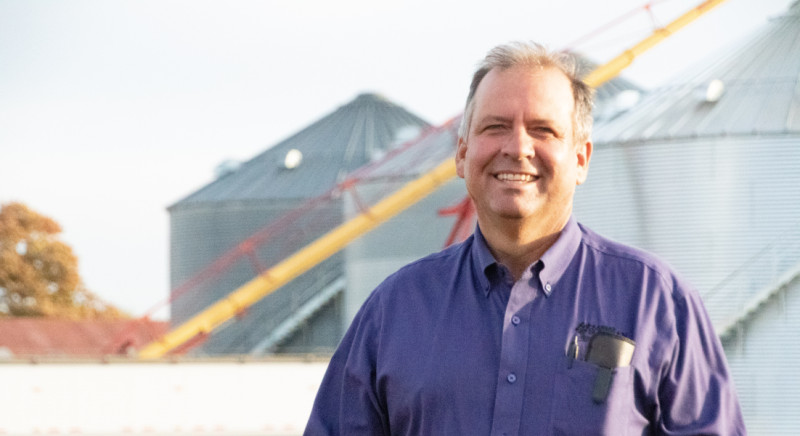Scott Gigstad: Farming with Faith
Scott Gigstad spent some time away from his family’s Atchison County farm before a combination of circumstance, generational roots and an appreciation for farming brought him back.
After earning a degree in animal science from Kansas State University, Gigstad worked for several years in the livestock industry. Eventually, he made his way to Fort Collins, Colorado, as an employee of the American Breeder Service. When the company went through a management change in the late 1990s, Gigstad originally wasn’t planning to leave. But when the Fort Collins location closed, he felt that the timing was right for a change.
“So, I moved back home to Everest and started farming,” he said.
Even though outside circumstances prompted Gigstad’s decision, it was a decision he says he would have made eventually.
“I enjoyed the mountains, and it was a fun time in my life, but I knew I was one of the few who had an opportunity to go be a farmer,” he said. “Not everybody has that opportunity, so that was a driving force for me to want to come back home.”
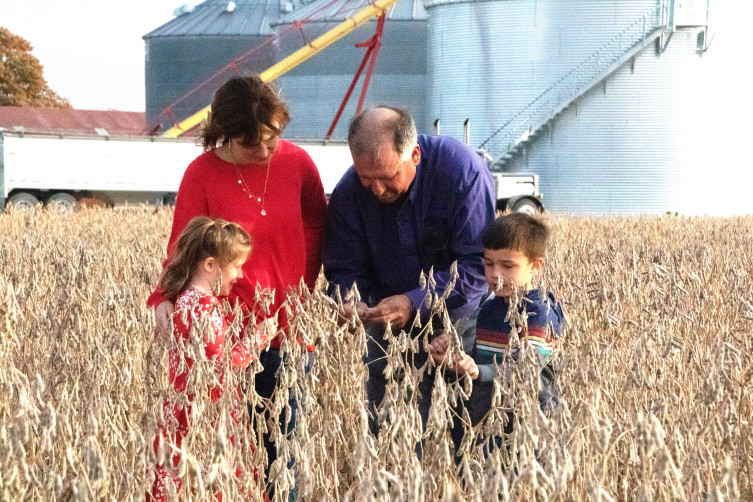 Now, Gigstad lives with his wife, Jessica, and their two children, Liesl and Cal. He grows soybeans and corn and is the fourth generation in his family to farm on the land. In addition to his family’s history of farming, the work also ties into Gigstad’s faith.
Now, Gigstad lives with his wife, Jessica, and their two children, Liesl and Cal. He grows soybeans and corn and is the fourth generation in his family to farm on the land. In addition to his family’s history of farming, the work also ties into Gigstad’s faith.
“I’m a believer in the Christian faith and to me, farming is a reaffirmation of what the Bible teaches us because we see life begin every spring,” he said.
In fact, the connection to his faith is one of the main reasons he enjoys farming.
“We plant the crop in the soil every year with the faith that it's going to take off and grow, and it does,” he said. “That’s the sort of joy I get, being out in nature and being able to produce something that is going to be used to help feed others.”
The soybeans and corn grown on Gigstad’s farm are used in many foods, but the impact of his work goes further than just the grocery store shelves. For example, he uses various soil-conserving practices, which help to sustain the land and improve its ability to produce crops.
“We've done things like grid sampling and variable rating our fertilizer, and now we're working on cover crops, so we've done things to increase the fertility of the soil,” Gigstad said.
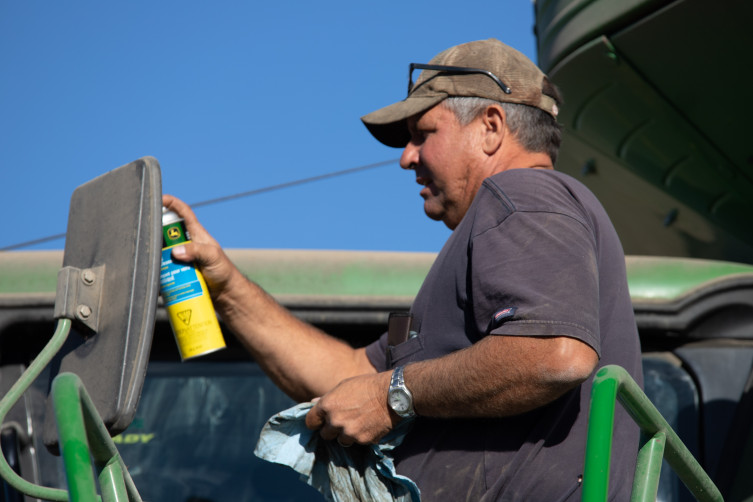 The grid sampling and variable rating practices used by Gigstad help prevent over-application of fertilizer. Over-application negatively affects crops by increasing the pH level of the soil, which depletes certain nutrients.
The grid sampling and variable rating practices used by Gigstad help prevent over-application of fertilizer. Over-application negatively affects crops by increasing the pH level of the soil, which depletes certain nutrients.
“I would like to think I'm taking our farm ground and while I'm around here on Earth I'm managing it,” Gigstad said. “I'm going to pass it on to the next generation and leave it in better shape than it was when I found it.”
Farming has had an impact on Gigstad himself as well. He has learned to be patient, whether he’s waiting for rain or for a wet field to dry out. He has also learned to persevere during challenging situations.
“In our minds, we all know how to do everything as to what we think is perfect or correctly,” he said. “Oftentimes, Mother Nature doesn't give us those events to make things perfect, and so you have to learn to persevere through those times.”
In addition to being a farmer, Gigstad is also president of the Kansas Soybean Association board of directors. The farmer-led board works to influence agricultural policy by meeting with legislators on the state and national level. They discuss the issues affecting Kansas farmers and how policy implementation can move the needle.
For Gigstad, being involved with the KSA is not only a way for him to learn and grow, but also a way to give back to agriculture.
“Hopefully through those contacts, I can take that information and share it with my neighbors, for example,” he said. “Or if they call me, I can give them the information and maybe I can entice them or show them the benefits of being a member and maybe get a new association membership.”
When asked if there was anything he wanted consumers to know, Gigstad spoke about the importance of promoting agriculture.
“Agriculture is not unlike any other business, in that it's constantly evolving and changing,” he said. “As human beings, if we are going to survive, we are all going to need to eat. So, I think telling our story of agriculture, producing a quality product and being able to do it as economically as possible for the world is what our job is.”

